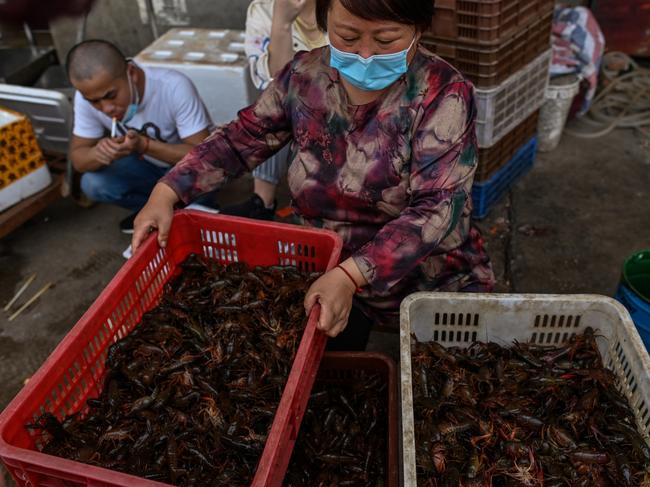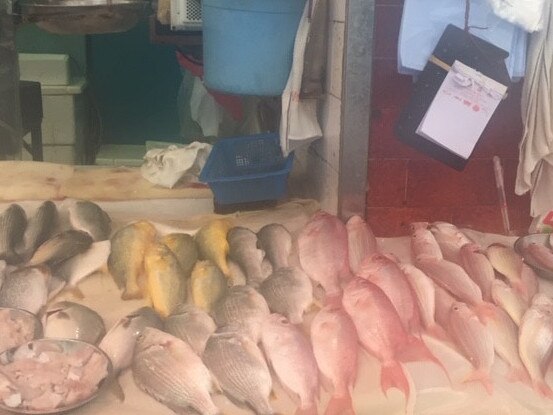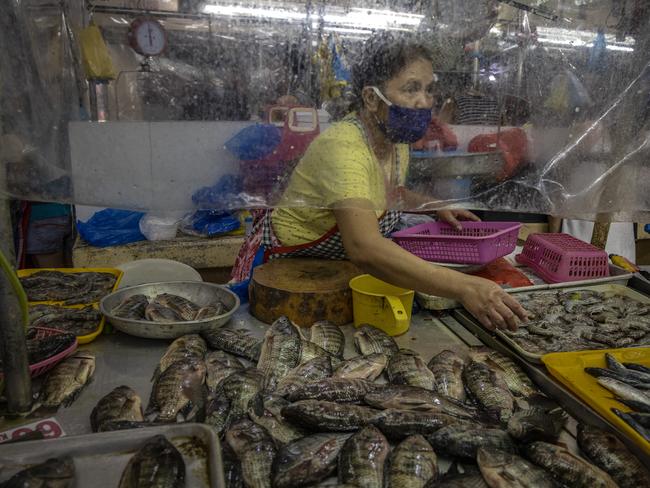Wildlife wet markets selling slaughtered bats alongside other exotic animal meats continue to operate in Indonesia
Wet markets as “extreme” as the one in Wuhan blamed for causing the COVID-19 pandemic are thriving in Indonesia. GRAPHIC CONTENT
Coronavirus
Don't miss out on the headlines from Coronavirus. Followed categories will be added to My News.
Wildlife wet markets selling dead bats along with other animal meats including cooked rats on sticks and charred dogs continue to operate in Indonesia despite urgent warnings about the risks to human health.
A report in The Australian contains shocking images of the animals being sold at the markets under conditions similar to those in Wuhan that led to the current COVID-19 disaster.
Australia is pushing an international campaign which it hopes will lead to a ban on wet markets. But authorities in Indonesia say they cannot shut down the markets because they are a source of food for local people.

Shoppers swarmed to a notorious “extreme meat” market at Tomohon in central Indonesia where rows of bat carcasses were lined up on bloodied butchers’ tables next to charred dog bodies and pig heads.
Pythons hung from meat hooks while other vendors sold whole cooked rats on sticks.
In Jakarta’s Jatinegara market, live bats — slaughtered for their hearts, which are considered good for asthmatics — are displayed in cages wedged against others holding known illegally caught civets, monkeys and snakes.
One bat seller told The Australian he was having trouble securing his usual supply because the hunting area had been “badly hit by the pandemic”.

“We are concerned about health but we must continue to show up for work. What else can we do except sell meat as usual?” he said.
Indonesia’s COVID-19 taskforce spokesman Achmad Yurianto said “the decision to discipline or close these ‘extreme’ markets should come from local authorities, not from us”.
Australian Chief Veterinary Officer Mark Schipp says the disgusting conditions in wet markets pose serious risk to public health.
“When you bring wildlife into a market like that, they’re stressed and are going to shed more virus in bodily fluids; faeces, blood, urine,’’ Dr Schipp said. “Typically they wash down once or even more a day, which aerosolises the virus and creates the opportunity for it to spread between species.

“When they’re stacked on top of each other there is faeces, blood, urine falling on one another.”
Agriculture Minister David Littleproud has called on G20 colleagues to support Australia’s plan to phase out wildlife wet markets, calling them a “biosecurity and human health risk”.
The government has submitted recommendations to the World Health Organisation for strict regulation of the markets.
Groups such as the Jakarta Animal Aid Network have lobbied for years to close down Indonesia’s wildlife markets, arguing that the wildlife is captured illegally and there is no food security or cultural justification for them.
Tomohon local government chief health officer Isye Liuw said: “Of course we are concerned but we cannot close them because people are still going there to buy their daily needs.”
This story is based on an article published in The Australian.
